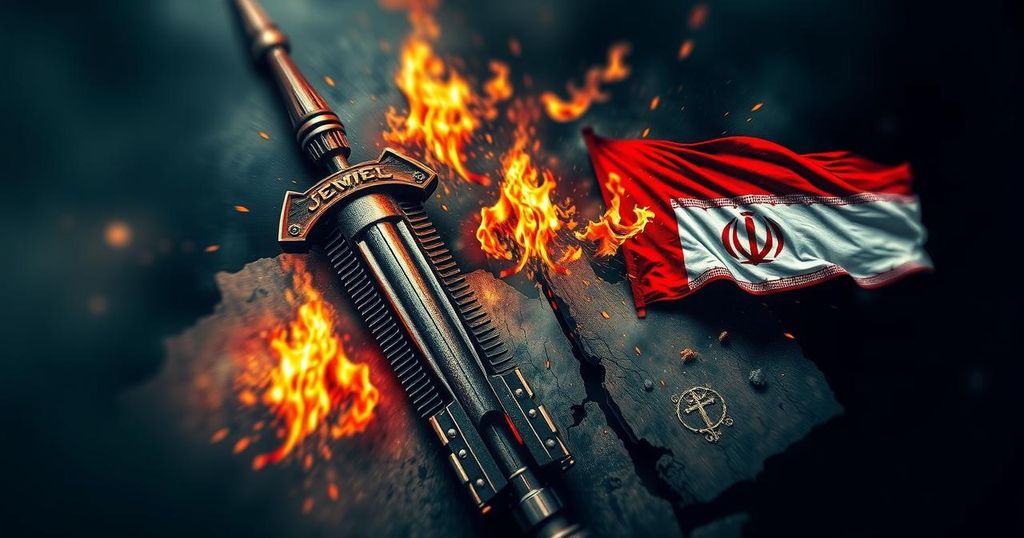Hezbollah’s Nasrallah Killed: Implications for Israel and Iran’s Role in the Region

Hezbollah leader Hassan Nasrallah has been killed in an Israeli airstrike, causing significant implications for Israel’s strategy towards Hezbollah and Iran. The situation has intensified the ongoing conflict, with Prime Minister Netanyahu asserting a strong stance against ceasefires, as the military confronts multiple fronts, including the Houthis in Yemen.
In a dramatic escalation of regional tensions, Hezbollah’s leader, Hassan Nasrallah, has reportedly been killed by Israeli forces in a precise airstrike that employed advanced bunker-busting technology. This development represents a monumental setback for Hezbollah, a group that receives backing from Iran, and has raised critical uncertainties about Israel’s forthcoming military strategies, particularly concerning Iran itself. In the wake of this incident, the Israeli military’s sustained offensive against Hezbollah intensifies, and Prime Minister Benjamin Netanyahu has voiced a resolute opposition to any ceasefire, emphasizing direct threats to Tehran as the situation evolves. The implications of Nasrallah’s death could markedly affect the dynamics of conflict in the region. The incident has further expanded the scope of Israel’s military engagements, which spans multiple fronts, including Gaza, the West Bank, and now Hezbollah in Lebanon, not to mention the looming threat of the Houthis in Yemen. Experts, including Rohan Gunaratna, provide insight into the potential ramifications of Nasrallah’s assassination and the overall strategy adjustment from Israel regarding Iran, highlighting a pivotal moment in West Asian geopolitics.
The recent death of Hassan Nasrallah is a crucial event in the ongoing struggle between Hezbollah and Israel, a conflict deeply intertwined with Iran’s influence in the region. Hezbollah has been pivotal in supporting Iranian objectives in Syria and opposing Israeli interests. As this conflict unfolds, it has significant implications for Israeli security and broader regional stability, notably influencing relations and shifting strategies among various militant factions and state actors across the Middle East.
In summary, Hassan Nasrallah’s assassination marks a critical turning point in the Israeli-Hezbollah conflict with far-reaching implications for Iran and the wider Middle East. The Israeli military’s aggressive posture is likely to persist, as indicated by Prime Minister Netanyahu’s comments. As the region braces for possible escalations, attention turns to the evolving geopolitical landscape, shaped by these unfolding events and the responses from Iran and allied groups.
Original Source: www.indiatoday.in








